Future Students
Future Intake Information
| Kindergarten to Grade 8 | The International Program is no longer accepting elementary student applications. |
| Grades 9 to 12 | The application for September 2024 intake for Secondary/High School is closed. High school spaces are still available for February 2025 intake. |
| Post-Secondary Program (February 2025 Intake) |
NOTE: Program availability may vary from intake to intake. Please check for updates on a regular basis. |
Admissions Requirements
Grades 9 to 12 (High School) Admissions Requirements
- Passport
- Transcripts from the past 2 years, must be translated into English or French
- $250 Application Fee (non refundable)
- Student Letter and Parent Letter to Homestay Family (if applicable)
- Signed Participation Agreement, accessed during the application process
Post-secondary Programs Admissions Requirements
- Passport
- Grade 11 and 12 high school equivalent transcripts, must be translated into English or French
- Transcripts from all Post-Secondary institutions attended, must be translated into English or French
- High school diploma or equivalent
- $250 Application Fee (non refundable)
- Resume, including all academic history, work and volunteer experience
- Proof of English Score, per below
Test Type | Minimum Requirements |
|
|
|
|
|
|
Manitoba Academic Information (K-12)
High School Graduation Diploma Requirements
Students who successfully complete high school courses receive credits towards a Manitoba High School Diploma. Students must earn a minimum of 30 credits of compulsory and elective courses in grade 9, 10, 11 and 12 to meet graduation requirements. For students who have previously completed some high school in their home country, and are interested in pursuing a Manitoba High School Diploma, transcripts can be evaluated to determine how many Manitoba High School Credits can be assigned.
International students joining the program at the grade 12 level who are interested in pursuing a Manitoba High School Diploma, must complete two semesters.
More relevant information can be found here:
Grade Placements
Students are placed into Canadian-equivalent grades based on information in their applications and on age appropriateness.
School Placements
Students are assigned schools based on space and program availability. Students may make requests for a specific school(s) when they submit their application form. 91̽»¨app's International Student Program reserves the right to make the final placement decision.
English as a Second Language (ESL)
An ESL assessment may be conducted for students for whom English is not their first language. This assessment helps to determine the best program and level for each student.
ESL support is provided for international students who require additional language support. Specialized ESL support is provided in all 91̽»¨app high schools.
Study Permit and Post-graduation Work Permit (PGWP) Information
Study Permit
For the average visa processing time in each country, check out the Immigration, Refugee and Citizenship Canada (IRCC) website at prior to submitting an application. Students should apply early and allow sufficient time to apply for their visa.
Post-Graduation Work Permit (PGWP)
After completing programs at LRATC, international students are eligible to apply for a Post-Graduation Work Permit (PGWP) that is valid for the equivalent of their program duration at ATC. Please visit the Immigration, Refugee and Citizenship Canada (IRCC) website at for more details.
Immigrating to Canada:
The Canadian Government has clear rules governing who can provide advice on immigration, refugee, and citizenship matters. Please contact one of the following:
- Citizenship or immigration consultants who are members in good standing of the Immigration Consultants of Canada Regulatory Council (ICCRC).
- Lawyers and paralegals who are members in good standing of a Canadian provincial or territorial law society;
- Notaries who are members in good standing of the Chambre des notaires du Québec.
Government of Canada sites to help protect you in Canada as student:
Why study High School at 91̽»¨app ISP
-1.jpg)
Monthly Cultural Activities
Culturally Diverse Homestay Program
Through the 91̽»¨app Homestay Program, students experience what it is like to be a member of a Canadian family in a warm, welcoming home environment. International students apply for a homestay experience to:- Learn about Canada and experience customs & celebrations and how they differ from their home country
- Share their culture with their Canadian hosts
- Experience what it’s like to live a Canadian lifestyle in a Canadian home
- Practice and develop English/French language skills
Save Money by Claiming Tuition Fees (Post-secondary)
Post-secondary education is expensive, especially with the rising cost of living. It is important for students to take advantage of the . This credit helps students in Canada reduce their federal and provincial income tax bills. Students must submit T2202 tax form when filing their tax returns each year.Life in Winnipeg
Activities in Winnipeg
The 91̽»¨app (91̽»¨app) is located in Winnipeg, the capital city of the province of Manitoba, Canada. Winnipeg is the "heart of the continent" because it is the geographic centre of North America.
Winnipeg is a major urban centre with a population of approximately 800,000. The city has many parks and rivers, historic architecture and diverse cultural activities and is only a short driving distance from many beautiful lakes, beaches and rolling prairies.
Winnipeg also provides students from around the world the unique experience of living somewhere with four distinct seasons: spring, summer, autumn (fall) and winter. Each season has a different kind of environment, temperature, plant life and activity to experience.
Below, please find some seasonal events and activities students may experience during their stay in Winnipeg:
Fall Events (September – October) 
- Canada Goose migration
- Manitoba Culture Days
- Manitoba Dragon Boat Festival
- Corn mazes
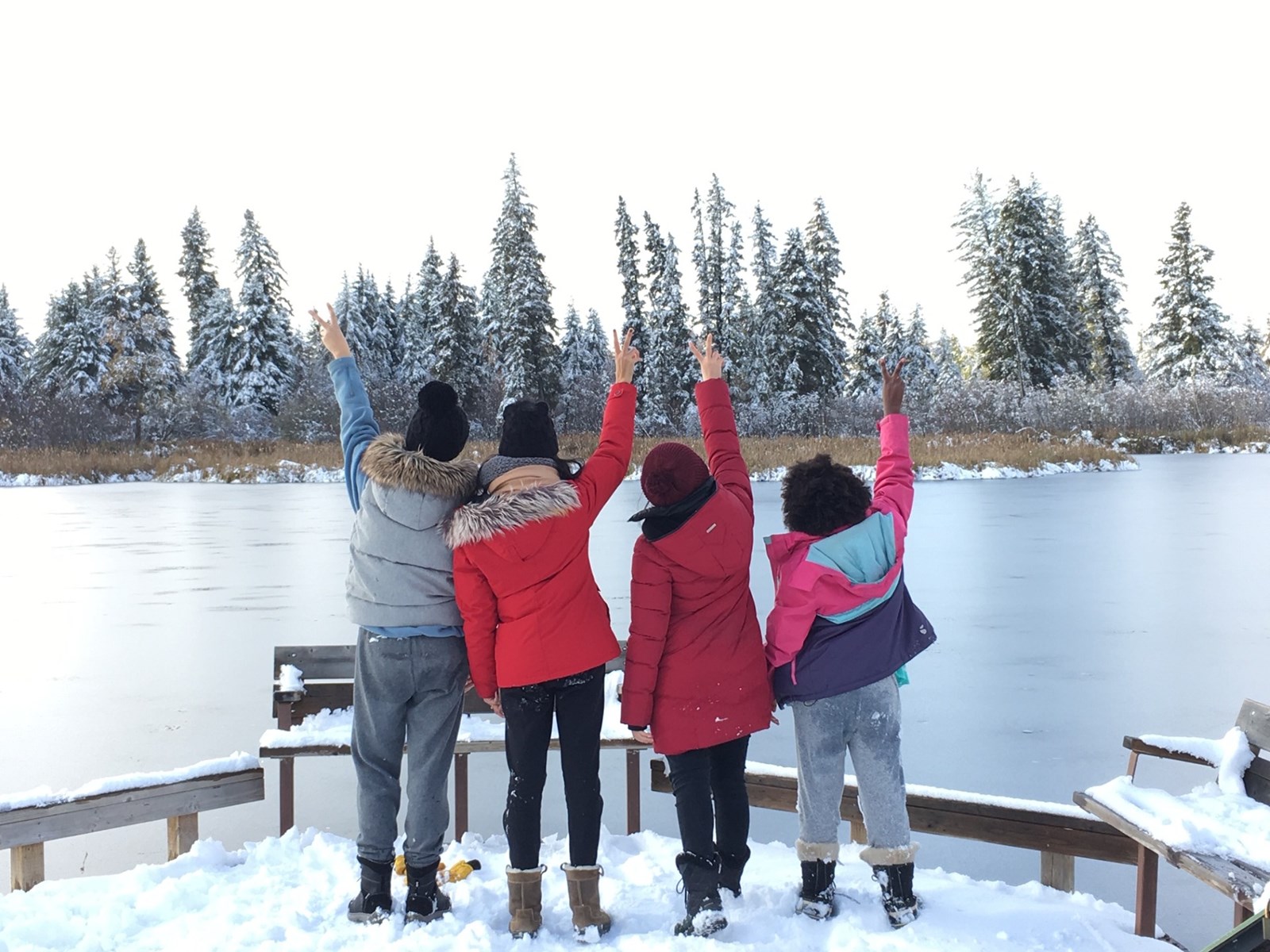
Winter Events (November – February)
- Santa Claus Parade
- Winnipeg Symphony Orchestra New Music Festival
- Festival du Voyageur
- Canada Inns Winter Wonderland
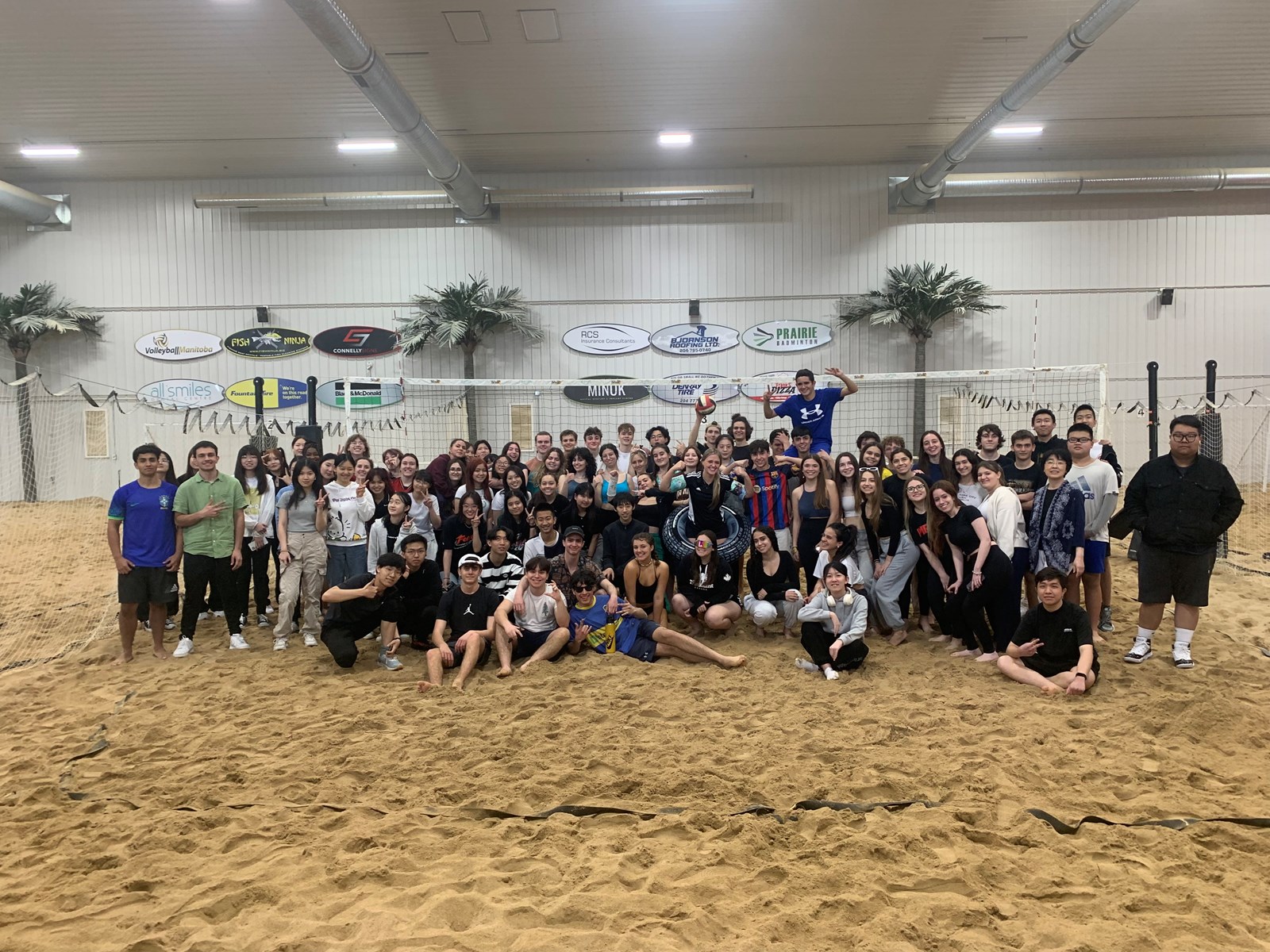
Spring Events (March – May)
- Human Rights Film Festival
- Dance Manitoba: Provincial Dance Festival
- Teddy Bear's Picnic
- Winnipeg International Airshow
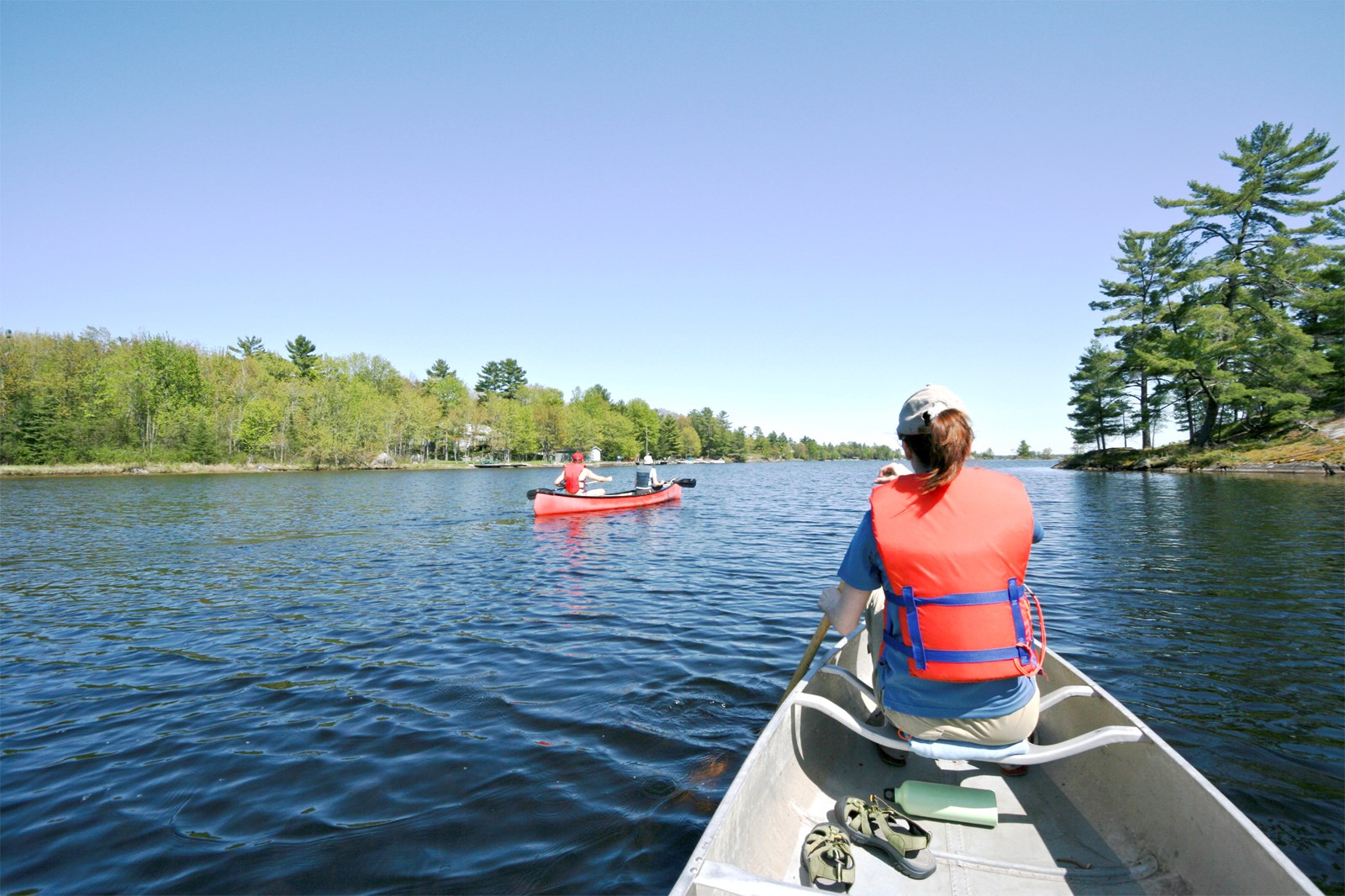
Summer Events (June - August)
- Winnipeg International Children's Festival
- Winnipeg International Jazz Festival
- Red River Exhibition
- Winnipeg Folk Festival
- Winnipeg Fringe Theatre Festival
- Ballet in the Park
- Folklorama
- Manito Ahbee Festival
Professional Sports Teams
Winnipeg has many professional sports teams. Students can attend events and feel the excitement at a game for the Winnipeg Jets or the Manitoba Moose (hockey), the Manitoba Sea Bears (basketball) the Valour Football Club (soccer), the Winnipeg Blue Bombers (American football) or the Winnipeg Goldeyes (baseball).
There are also other activities and things to do:
Parks, Museums & Historical Sites
Winnipeg and Manitoba have many parks, museums and historical sites that provide a great understanding of history and culture.
- Lower Fort Garry
- Mennonite Heritage Museum
- Riel House National Historic Site
- Musée de Saint-Boniface Museum
- Canadian Museum for Human Rights
- The Manitoba Museum (Science Gallery and Planetarium)
- Manitoba Children's Museum
- Manitoba Electrical Museum
- Western Canada Aviation Museum
- Winnipeg Railway Museum
- The Forks Historical Site
- Living Prairie Museum
- Fort Whyte Alive
- Oak Hammock Marsh
- Assiniboine Park and Zoo
- Fun Mountain
- St. Vital Park and Duck Pond
- Provencher Park
- Harbourview Park
- La Barriere Park
- Crescent Drive Park
- Central Park (Downtown)
- Birds Hill Park
- Manitoba beaches
Arts and Culture
Winnipeg is a hub of amazing and vibrant artistic talent. Students may enjoy a number of artistic events and activities:
- The Winnipeg Art Gallery
- Gallery 1C03 (University of Winnipeg)
- Plug In Institute of Contemporary Art
- Art galleries in the Exchange District
- Manitoba Theatre for Young People (MTYP)
- Royal Manitoba Theatre Centre (MTC)
- Rainbow Stage
- The Forks (performances and entertainment)
- Canada's Royal Winnipeg Ballet
- The Winnipeg Symphony Orchestra
- Manitoba Opera
- Outdoor concerts
Great Shopping
Winnipeg has many shopping centres and markets with both local and international boutiques.
- St. Vital Shopping Centre
- Polo Park Shopping Centre
- Portage Place Shopping Centre
- Winnipeg Square
- Kenaston Common
- Exchange District
- Chinatown
- Osborne Village
- Corydon Avenue
- Academy Road
- Old St. Boniface
- The Forks Market
- St. Norbert Farmer's Market
- Value Village and other nearly new stores (ideal for low-cost winter clothes)
Sports & Recreation
There are many professional and recreational sporting activities:
- Football (Winnipeg Blue Bombers)
- Baseball (Winnipeg Goldeyes)
- Hockey (Winnipeg Jets)
- Ringette
- Soccer
- Miniature golf
- Golfing
- Bowling
- Skating on the Red River
- Curling
- Skiing/Snowboarding
- Cross-country skiing
- Tobogganing/Sledding
- Snowshoeing
- Rollerblading
- Swimming
- Mountain biking
- Fishing
- Hiking
- Skateboarding
Holidays & Celebrations
There are also many holidays and celebrations throughout the year:
• New Year's Day (January 1) – Public holiday celebrating the start of the new calendar year.
• St. Valentine's Day (February 14) – A day for friends and loved ones to give cards and gifts to one another. This day originally honoured St. Valentine.
• Louis Riel Day (third Monday in February) – Public holiday that commemorates the life of Louis Riel, a politician who represented the Métis people's interests. Louis Riel Day gives people in Manitoba the chance to enjoy time with their families and learn about Métis culture. Students do not have school on this day.
• St. Patrick's Day (March 17) – A day named after St. Patrick, who brought Christianity to Ireland. People often wear green on this day to represent Ireland.
• Spring Break (usually the last week of March) – Sometimes called spring vacation or mid-term break. Students get the entire week off from school.
• Good Friday (the Friday before Easter) – A day to remember the death of Jesus Christ. Students do not have school on this day.
• Easter (a Sunday between March 22 and April 25) – Celebrates the resurrection of Jesus Christ and has become a general holiday marking the beginning of spring. Many families have traditions of colouring boiled eggs ("Easter Eggs") and giving chocolate eggs or Easter bunnies.
• April Fools' Day (April 1) – A day when people often play practical jokes on each other.
• Mother's Day (second Sunday in May) – A day honouring mothers.
• Victoria Day (Monday preceding May 25) – Celebrates Queen Victoria of England, who was the queen at the time of Canadian federation. For many Canadians, it marks the start of summer.
• Father's Day (second Sunday in June) – A day honouring fathers. The Manitoba Marathon is held on this day.
• Canada Day (July 1) – A celebration of Canada's birthday. Most cities will have fireworks at night. Usually considered the first weekend of the summer holiday season and many Canadian families go away or begin their summer holidays at this time.
• Civic Day (first Monday in August) – The Civic Holiday is commonly referred to as the August Long Weekend. It is probably the busiest day on highways as tens of thousands of families go camping, to cottages and on other short trips on this weekend.
• Labour Day (first Monday in September) – Public holiday honouring working people. Usually considered the last weekend of the summer holiday season. Students do not have school on this day.
• Thanksgiving Day (second Monday in October) – Public holiday, a day of general thanks. Usually celebrated with a big family meal, likely having turkey as the main dish. Students do not have school on this day.
• Halloween (October 31) – A day when people emphasize scary things, wear costumes, and have parties. Young children wear costumes and go door-to-door around their neighbourhood to collect candy ("trick-or-treating").
• Remembrance Day (November 11) – An official day of observance to honour Canadian soldiers and the anniversary of the end of World War I. Students do not have school on this day.
• Winter Break (dates vary) – Students have 10 to 14 days off of school between semesters in the winter to celebrate the holiday season.
• Christmas (December 25) – Celebrates the birth of Jesus Christ. Usually celebrated by exchanging gifts, decorating a Christmas tree and through a variety of family traditions.
• Boxing Day (December 26) – Most people celebrate this holiday by spending the day with family and friends or going shopping, as stores have after-Christmas sales.
• New Year's Eve (December 31) – Celebration of the end of one calendar year while New Year's Day (January 1) marks the beginning of another.
Stay in Winnipeg
There are many private or shared accommodations available for rent in the Louis Riel catchment area. Try using an online search tool (i .e.,) to find available properties for rent in Winnipeg.Transit in Winnipeg
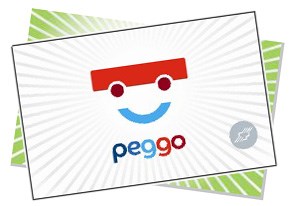
Winnipeg Transit uses a bus pass called Peggo Card. Peggo Cards are reloadable, making paying the bus fare more convenient. A Peggo Card may be purchased in person (all 7-Eleven stores and all Shoppers Drug Mart stores across Winnipeg), or by calling 311. A minimum of $5 e-cash or any e-pass must be purchased with the card in order to validate the card. Find more information on Peggo Cards here:
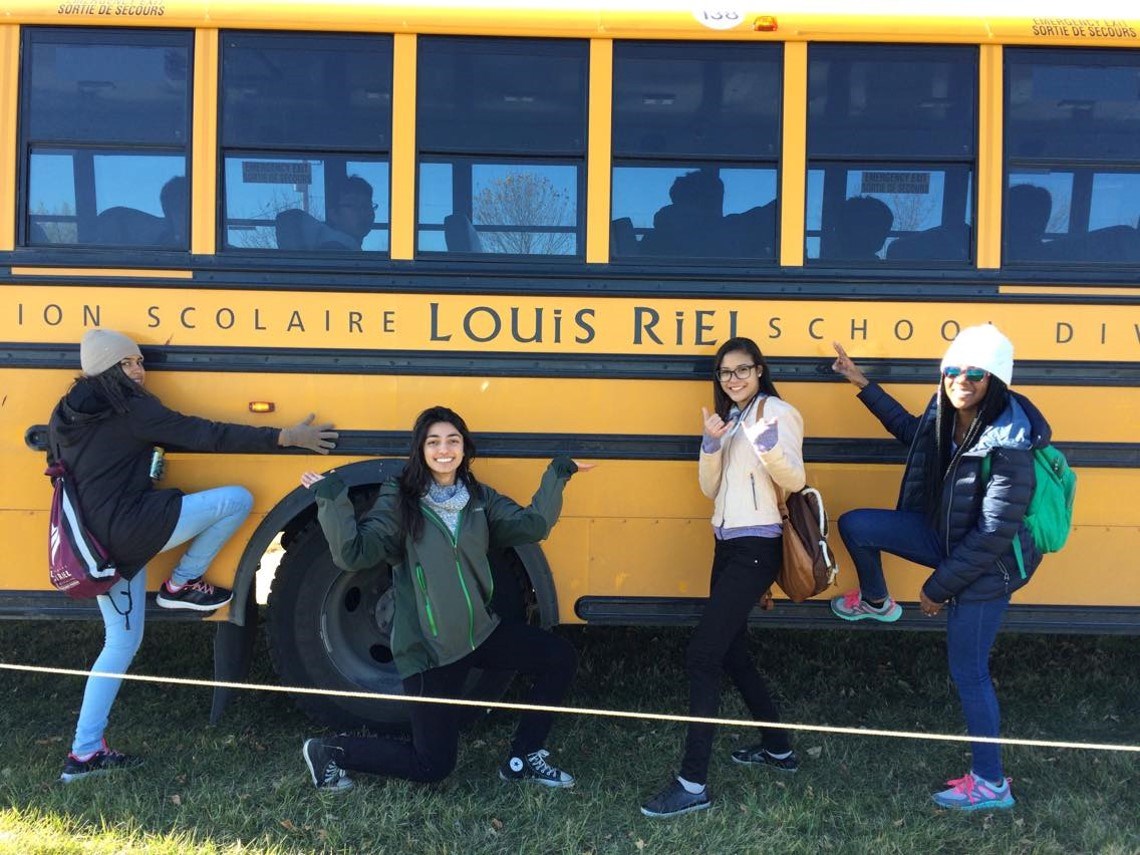 | .jpg) | 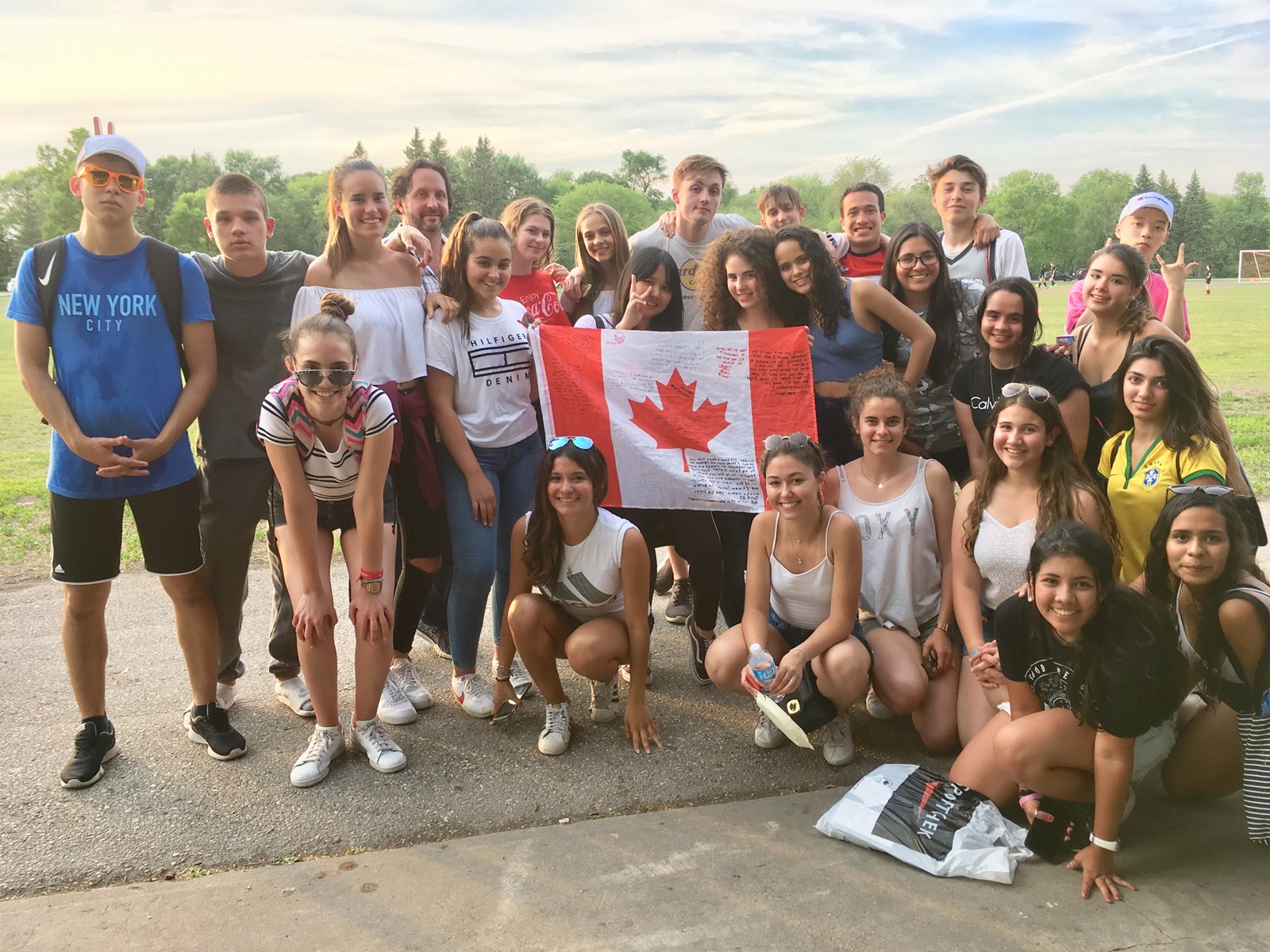 |
